Avoid the 5-Year Fixed Mortgage Trap
Should I go short or long; fixed or variable with my mortgage?
“I wish I had an answer to that, because I’m tired of answering that question.” – Yogi Berra
Number 3 on our list of things on which Canadians waste the most money is 5-year fixed mortgages.
They are marketed as being safe and a good protection against a sharp rise in interest rates. The reality, though, is that they are nearly always a huge waste money, they limit your flexibility and result in losing your negotiating power for 5 long years.
That is why we call it the “5-Year Fixed Mortgage Trap”.
I am not a mortgage broker, but have researched mortgages and always have strong opinions. The most common questions about mortgages are “short vs. long” and “variable vs. fixed”. Which is better? Canadians often debate this, but studies consistently show that short beats long and variable beats long term fixed.
If it is so obvious, then why doesn’t everyone see it? Longer term mortgages are marketed heavily by banks and mortgage brokers that make far more money on them then short term mortgages. Also, most people are bad at math and may get a general feeling of security from a fixed rate, but they do not do the math on how much this protection costs or the odds that they will lose money.
“Unfortunately, most of the existing folklore and advice is rarely subjected to formal statistical analysis and does not address the probability that a given strategy will be successful.” (Moshe Milevsky) The main reasons commonly used for taking 5-year fixed mortgages turn out to essentially be myths:
3 Mortgage myths about 5-year fixed mortgages:
1. They are safer
A study by Moshe Milevsky, finance professor at York University, from 1950-2000 showed that the average Canadian wastes $22,000 after tax (based on a $100,000 mortgage for 15 years) in their life because they got sucked into 5-year fixed mortgages rather than variable.
If your mortgage started at $300,000, then you can expect to waste $66,000. They also took on average 38 months longer to pay off their mortgage. The chance of losing money over 5 years was 89%. A study by Peter Draper (mortgage broker) comparing 5-year vs. 1-year mortgages from 1975-2005 showed that the 1-year mortgage saved money 100% of the time! How can an 89-100% chance of losing thousands of dollars be safer?
2. Rates may go very high like in the 1980s
I was an accountant for a mortgage company in 1982 when mortgage rates peaked at 22.75%. My first mortgage was a 5-year fixed in 1980 at 13.75%. I thought that I had lucked out, since rates jumped to 22.75% and were back to 13.75% by 1985 when it came due. What I didn’t realize was that, even then, I would have saved money by going variable! Based on Peter Draper’s study, I would have lost money for 2 years and saved money for 3 years. So, even with a huge leap of 9% in mortgage rates in the first 2 years of my mortgage, I still lost money with a 5-year fixed rate!
Also, the odds of a huge rate rise are extremely low. We can’t calculate them, since it has only ever happened in the early 1980s, but the odds must be extremely low. Demographers, like Harry Dent, claim it related to Baby Boomers entering the housing market for the first time, which is a phenomenon we don’t expect to be repeated in the next few decades.
3. Your mortgage payments will stay the same
Most variable mortgages also keep your mortgage payment the same during the term. Many people believe that their mortgage payment will fluctuate with a variable mortgage, but this is also a myth.
Top 4 reasons to stick to short or variable mortgages:
1. Save thousands
On average, you should save 22% of the starting amount of your mortgage and pay it off 38 months earlier. (Moshe Milevsky) In the Toronto area, an average mortgage is $2-300,000, which would be savings of $44-66,000 after tax. That is essentially one full year’s earnings, so the average person works one extra full year just to pay the money wasted by taking 5-year fixed mortgages!
2. Low risk
With variable mortgages, the chance of saving money is 89-100%. Yes, the variable is the low risk!
3. Flexibility
Many things can happen in your life in 5 years that may make it advantageous to refinance. You may want to move, roll in other debt to get the lower rate, make extra payments with no limit or change some terms. Our experience with our clients is that most do some sort of refinancing every couple of years, so being locked in for 5 years is a long time.
4. Negotiating power
The mortgage market is very competitive, so every time your mortgage comes due, you have lots of negotiating power. You can change any term you want, get a free appraisal, negotiate a lower rate, or get an unsecured credit line or other banking service. During the term, you have hardly any power. Remember that when you sign a 5-year mortgage, you sign away your negotiating power for 5 years!
The main reason that 5-year fixed mortgages lose money vs. 1-year is that, in a normal market, they start about 2.5% higher. If you pay 2.5% more in year 1, you need the average for years 2-5 to be more than 3% higher than today’s rate. To be ahead, rates would have to jump by more than 3% and stay there for the next 4 years – a very unlikely scenario.
Conclusions:
- Stick to 1-year fixed or variable mortgages. Usually, you should take whichever is lower, but only take variable at a good discount, such as prime -.8-.9%.
- Avoid 5-year fixed. Sometimes, they are tempting, but always assume they will end up costing much more, plus you will have lost your flexibility and negotiating power for 5 years. Remember that even when rates leaped 9% in 2 years from 1980-82, short term rates still saved money.
- Never take a mortgage term longer than you expect to stay in your current home.
We have been referring people to mortgage providers since the mid-90s and most today have rates below 2%. Most of our clients still have the prime -.85% rate that we had for years before this recent crisis or have our recent 1-year rate of 1.99%.
Today, we are recommending 1-year fixed, not variable. The best variable rates are prime -.4-.6%, but rates are normalizing quickly. We expect that the prime -.85% (or lower) rates will be back soon. We expect that anyone taking a variable today will regret having locked in before the larger discount is available.
Ed Rempel is a Certified Financial Planner (CFP) and Certified Management Accountant (CMA) who built his practice by providing his clients solid, comprehensive financial plans and personal coaching. If you would like to contact Ed, you can leave a comment in this post, or visit his website EdRempel.com. You can read his other articles here.


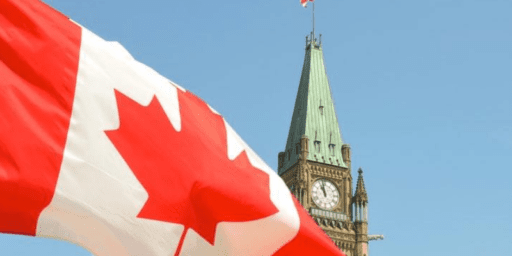

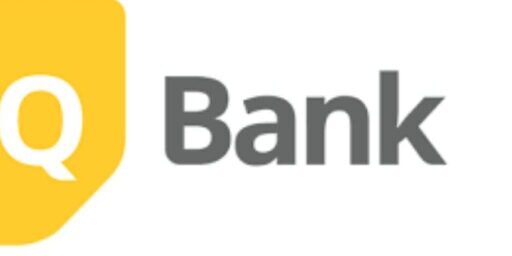
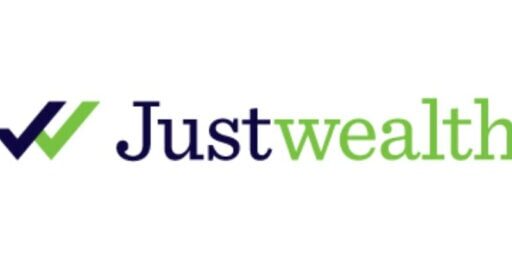
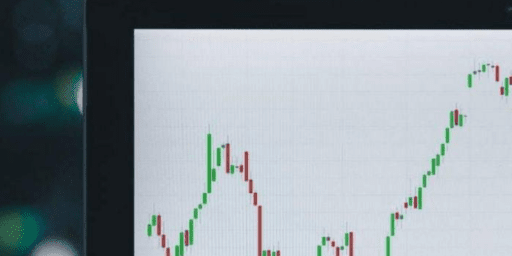

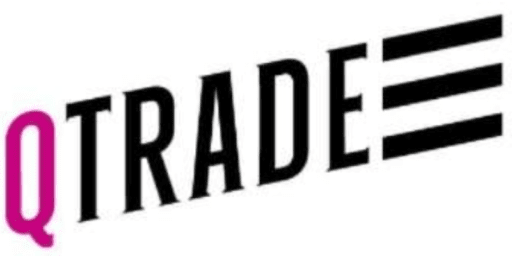

So times have changed but the age old questions about mortgages remain. Different year, different economic situation, same questions. I am up for renewal in August and I have a nice prime-1.05 (currently 3.7%) locked with the same lender with good prepay options so no big paper works or extra fees to pay. Fixed rates had already risen by the time I could get 90 day lock ins (forgetting that some do 120days!) and life stuff prevented me from really looking too deeply prior in regard to early renewal (and was also considering selling so didn’t seem to make sense). Bit of a mix up on my lock in paper work has me also approved for a 1yr fixed at 3.89 (instead of a 2 or 3 year, though they were higher and have risen even more). With rates, housing market and all that so uncertain right now and this last BOC increase a whole 1% though, the variable is making me nervous that it will increase another at least 1% in the next year. The fixed 2 and 3 year rates are up in the 4s now and while earlier 2022 predictions thought rates would start coming down in 2023 after two increases in 2022, it seems the timeline for rate settling may be pushed to 2024 with more increases? Selling is still on the table as my life is pretty uncertain right now (or porting to another property that has a more profitable income stream) but if prices fall significantly I don’t want a significant loss. My current place is a partial rental so I can write off some of the interest. It seems my options are prime-1.05% 5 yr variable (3.7% with certain increases) or 1 yr fixed at 3.89. I have some room in my budget for rates to rise as long as I can get steady renters but due to some work limitations in increasing my income, life costing more (and limits how much rental income I can get on this property) I don’t have a stomach of steal if my rate jumps more 2%. Any thoughts?
Quick question for the experts. Looking into getting first mortgage and have been quoted 2.14% (prime-.55) for a 3 year var and 2.05% (prime-.65) for 5 year variable. I know the article states that long term fixed rates (5 year fixed) are a bad idea but in this scenario it looks like the 5 year var is the better option. I just don’t see how the 3 year would be a better option especially if we are looking to live in the house for over 10 years.
I think the premise of this article isnt’ 3-year vs. 5-year variable, as in that case the cost to get out of either of these mortgages is the same and there’s no indication that you would get a lower variable rate in 3 years vs 5 years.
The point is more around 1, 2 and 3 year fixed vs 4 or 5 year fixed or 3 and 5 year variable options.
If you take a look at some of the mortgage rate sites online, you’ll notice that 1, 2 and sometimes 3 year fixed offerings are coming in at lower than 3 and 5 year variable offerings. I’ve seen 1.99% on a 2 year fixed. To me, under the right situation (i.e. not moving soon, don’t need any special products like HELOC or cash back, etc…) this makes more sense than locking into a 5 year fixed rate that’s almost 0.7% more or a 3/5 year variable rate that could fluctuate over the term.
Even if the rates are up when you come out of the 2 years, the 2 year rates at that time will probably still be better than the 4/5 year fixed rates and still comparable to the variable rates. Also if you consider the time value of money (i.e. money saved today is worth much more than money saved 3 years from now), locking in such a low rate in years 1 and 2 allows you to accept higher rates in years 3 – 5 and still come out ahead.
People could disagree, and I’m sure its different for everyone, but it seems like shorter fixed terms (which are discounted) seem to save people more money.
I’m with Nik. If you can get a 2 yr for less than your variable rates, I would personally pick that instead.
Hi Frugal and Ed,
I’m in a bit of a bind in terms of my mortgage as well… was hoping to lean on your expertise for advise.
My current mortgage is coming due in the next 3 months and I’m looking for a renewal. The catch is that I’ve purchased a pre-construction home that will be completing in Q4 of this year, which means that I will need to sell this current home and obtain a larger mortgage within 6-8 months of renewing.
Some relevant facts for my situation:
– The new home is roughly double the cost of my current home… I will be doubling my mortgage
– I would like to start the Smith Maneuver on my new home’s mortgage
So far the options I’ve been given by Mortgage brokers and banks are as follows:
1. Lock into a fixed or variable rate 4-5 year now and when the time comes for the new house, they’ll port the mortgage and give me the market rates at the time creating a blended rate. — I have serious reservations about this as they would essentially have me hostage to whatever rates they want to offer.
2. Take a variable mortgage and if i want to break it incurring 3 months interest.
I’ve been offered very good rates for 1 year (1.99%) and 2 year fixed (2.19%), and a decent 5 year variable (2.15%). 5 Year fixed is around 2.7%.
I’m leaning towards taking a variable 5 year mortgage and seeing what happens in Q4 when its time for a new home. I was wondering:
1. If I take a 5 year variable for 50% of my mortgage… is it likely the bank will allow me to take a 2 year fixed for the other 50%?
2. Since I’ll start to become heavily leveraged using the Smith Maneuver… will it be hard to qualify for the best mortgage rates every 2 years using the short term strategy?
3. Do you think taking a 5 year variable rate for the current mortgage renewal is smart given my situation?
Appreciate any advice,
Thanks!
Hi Nik,
I’ve been out of the mortgage game for quite some time. But from what I can see, what about the option of taking an “open” mortgage, then locking in the new mortgage when you finish the new house? Are you in a rush to setup the SM now because you want to invest the proceeds into the stock market ASAP?
Hi FT thanks for the response.
Ive asked a bunch of providers to give me an open rate and they all immediately dismiss it. Im beginning to think they are incentivized against it. I will continue to pursue one as an option though. It seems to work for me as long as the new construction isnt delayed more than 6-8 months… Which its too early to tell now if it will be.
Im not in any rush to start SM, ideally id like to start q4 this year or q1 2017. Im thinking long term (25-30 year horizon) so I’m not too fussed about a 6 month delay.
Ive seen open rares of 3.2%.. Do you think its worth it to take that vs a 2.15% variable and keep my options “open” in September /October when the new house is done?
Nik, best bet would be to run the numbers on the extra interest the open mortgage would cost vs. the penalty of the variable rate mortgage. You might want to get solid penalty numbers from your mortgage broker to avoid any surprises.
Thanks FT,
I ran the numbers, and it seems that even with Break fee penalties, it makes sense to go with the Variable rate since the incremental amount we’d pay into the house plus the money saved under the lower variable rate would end up being more than the break fee.
Hi Mathew,
I think the best choice today is the 2-year fixed. It is the lowest of the shorter-term fixed mortgages. We’re getting between 2.19-2.29% recently, depending on the day and the borrower.
This is up only .1% from a few weeks ago. 2 years ago, we were getting 2.79% and everyone was saying “rates can go nowhere but up”.
The 5-year fixed has never worked, as the article explains. When a mortgage person recommends a 5-year fixed, I usually take it as a sign they do not have your best interest at heart.
5-year variable rates are similar to the 2-year fixed, but require a 5-year lock-in. It’s useful to have your mortgage come due more often, in case you want to refinance in some way or take advantage of your negotiating power with the bank.
Whether you go with a bank or broker, get the lowest rate, negotiate having your appraisal fees paid, and avoid any of those restrictive clauses you were quoted. (You can usually also get your legal fees covered, but not when you purchase a home.) Usually, banks are more likely to absorb these fees.
I hope that’s helpful, Mathew.
Ed
I’m looking for a mortgage as soon as possible. I’m having only 5% down payment. And 90% i’ll be staying in this house for more than 5 years. So in today’s market rate is it better to go for a 5 years fixed or short term fixed or variable. I’m eagerly waiting for your answers. I need to take mortgage default insurance too…
@Mathew, going variable has historically been a money saver vs fixed. However, I believe home owners should go with the option that makes the most sense. The fixed mortgage will provide financial stability in knowing your payment every month for x number of years. Have you considered another approach where you go fixed, but for a shorter term? right now, I see the 2 and 3 year fixed mortgages are very attractive.
Thanks Fruga .. Really appreciated your help !!
1) Now the interest rates have gone up a bit from November 3rd 2015. Approximately 0.50% increase. I’m scared in 2-3 years it might still go up. In your opinion, is it better to get a mortgage from Canad’s leading bank for 2.90% for 5 years fixed with no clause or for 2.44% with private lenders with a clause stating that for 5 years i cannot payback my mortgage fully nor withdraw the mortgage unless i sell the property by paying penality?
2) Is it good to wait till Feb 2016 for a 0.50% decrease or its better to get it today’s rate and move out ASAP ….
Remember that if you speak with a mortgage broker, they will lock in the rate for 90 days. Personally, I’m willing to take some risk, so I would go for 2 or 3 year term then renew. Can you provide more details as to what private lenders are offering?
How about going with a variable rate according to today’s rates in your opinion ? Most of the people are asking me to go with the top 5 Canadian Banks but i’m still confused !!
Experts please help me , i’ll be getting a pre-approval within few days , So please help me with it !!
Hey Ed, are you still recommending a 2-year fixed mortgage to your clients?
Great article. Perhaps I missed it, but how do discharge fees (when switching mortgage lenders at end of term) figure into the equation? Here in Ontario, the norm seems to be in the $200-$400 range. If I’m charged that kind of fee at the end of each term, then the benefit of a shorter term could be cancelled out by these fees.
Alpha,
Get your bank to match RBC’s HELOC rate at prime. The +0.5% is pure gravy that I had my bank reduce on all my HELOCs, otherwise I would have taken all my accounts elsewhere. I went to two other banks who offered prime and were willing to pay all transfer/appraisal costs.
I use only HELOCs to finance properties and my bank now gives me the max. HELOC on new purchases instead of a mortgage. As you said, pay down is faster, easier and the paperwork is so much simpler than a mortgage since it just involves placing a lien. Purchases are now quick and streamlined.
One other item worth mentioning is the bargaining power of a HELOC. Even in today’s competitive (sometimes insane) real estate market, a no financing offer with a closing date of whenever the owner wants, still affords me the ability to buy at a lower, more reasonable price. Though it’s much tougher out there than it’s ever been to pull this off, especially when it comes to premium properties that will have multiple rental offers.
This is a great article! And from my experience, very accurate. Over the years, I’ve had a combination of mortgages: variable, fixed, and line of credit. The worst by far? You guessed it: The 5-year fixed. And for the exact reasons mentioned here:
1) When I sold a property, and broke a five-year fixed, I paid about $3000 in mortgage cancellation penalties. And it could have been worse, because the mortgage was modest in size, ie under $100 000.
2) Interest rates have essentially gone down over the last 10 years, so fixing for 5, has been a raw deal. No wonder this has always been the case since 1950. Some of these mortgages have been for rental properties, and since the interest can be written off as an expense, I’m keenly aware of the added cost for a five-year fixed!
Now, I use a Home equity line of credit (HELOC). Interest rate is higher at 3.5% (prime +0.5%), but there is no restriction on prepayment. Any immediate income I receive is used to pay down the principal. You pay the mortgage down much faster this way. Plus any larger purchases for business use (eg renovations to rental properties) are put on the HELOC, to write off a portion of the interest. Just be sure to keep the appropriate documentation.
I also have used short term mortgages. The interest rate is usually similar or better than the 5-year fixed, without all the worries of cancellation penalties. Check to see how much it will cost to cancel a 1-year mortgage early. Likely it won’t be much, because you’ll always be close to the renewal date.
My last 5-year fixed will expire this December. What will I do? Because I may sell the property with the next few years, HELOC and/or 1-year mortgage!
Ed, thanks for the reply! Embarrassingly, I completely forgot about this post until now. But my own research came to the same conclusion of the 2-year fixed at 2.59% so, I’m glad I’m on the same page as you. I also want to do smith manouevre once I move to more permanent home in a few years, so only locking in for 2 years is ideal. When I’m ready to do the smith manouevre, I’ll be contact your experts :) Other criteria I have for now is lump sum payments and being able to port mortgage penalty-free (if i decide to move). Met with a mortgage broker today who agreed (although she did try to convince me to go 5 year at first). She suggested First National or Street Capital, and was going to do some more reading and set up another meeting.
Interestingly, she discouraged me from getting a HELOC added as an emergency fund, since she said it can be hard to port those if I were to move (since they are set up separate from the mortgage) .